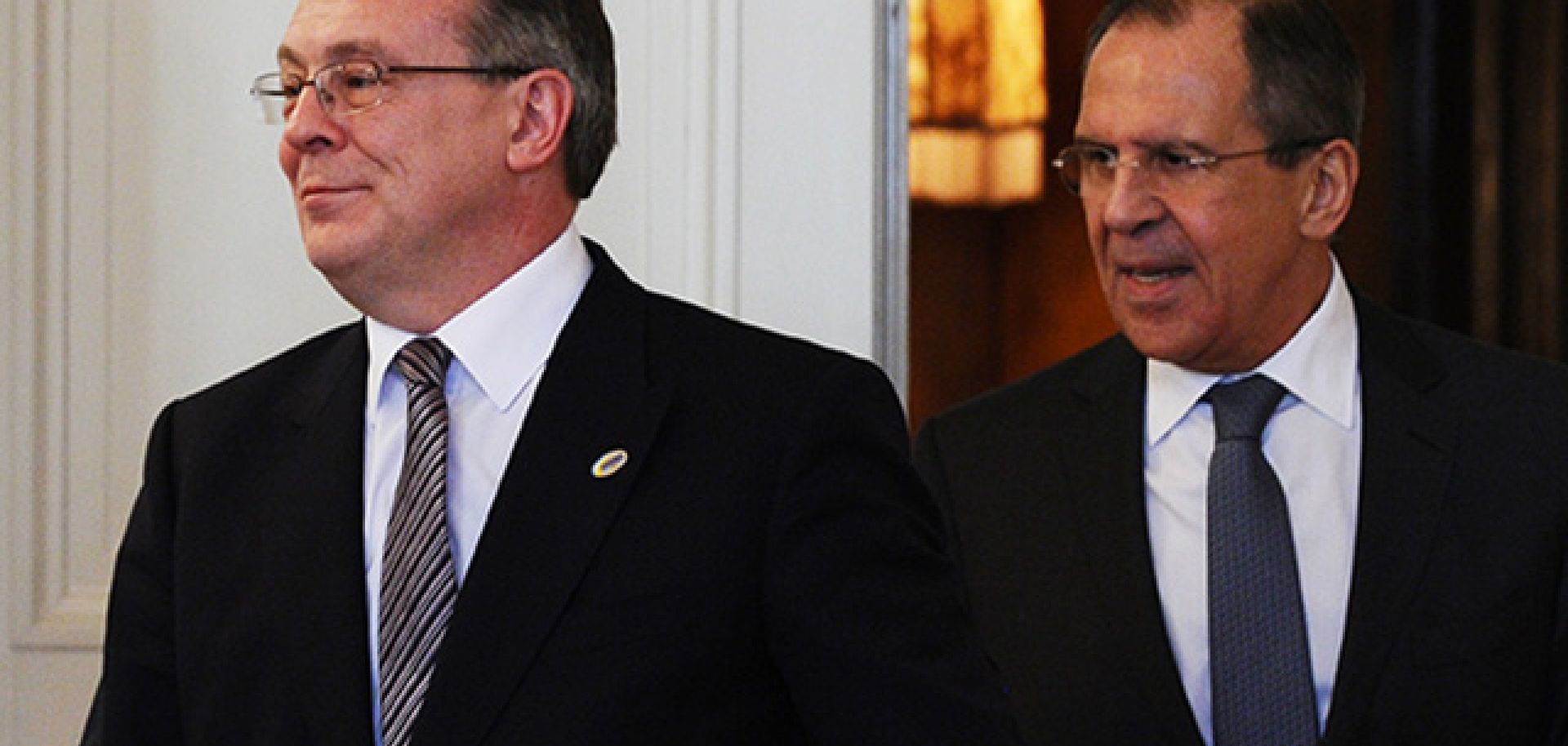ASSESSMENTS
Russia Urges Ukraine to Delegate More Power to Its Regions
Feb 19, 2014 | 14:22 GMT

(YURI KADOBNOV/AFP/Getty Images)
Summary
The Ukrainian Defense Ministry denied reports Feb. 19 that it was sending troops to Kiev to disperse anti-government protesters in Independence Square, also known as Maidan. The troops are moving between military units to tighten security at key facilities, the ministry said. Separately, police in armored trucks equipped with water cannons launched a fresh attack on the protest camps, urging the protesters to leave. Amid the unrest, Russia has found an opportunity to exploit Ukraine's divisions for its own benefit, namely by encouraging a discussion on Ukrainian federalism.
The notion of federalism has long intrigued Ukraine, a country that comprises a patchwork of markedly different regions. Calls for and against federalism tend to grow louder during times of crisis, so it is little surprise that the issue has once again come to the fore. In fact, over the past two weeks officials from eastern Ukraine, which stands to benefit the most from federalization, have openly lent their support for reforming the country's political structure. Perhaps more interesting, Russian officials have come out in favor of federalism. On Feb. 12, a high-level Russian diplomat in Ukraine was reprimanded by the Ukrainian Foreign Ministry for his outspokenness on the matter. A week earlier, a Russian presidential aide said Ukraine's regions should be able to create their own budgets and craft at least part of their own foreign policies.
It is clear why proponents in Ukraine would favor federalism. It would empower the country's regions, all of which have unique identities, demographics, politics and economies. But Russia's interest is somewhat less obvious: Moscow is promoting the notion of federalism to bolster Russia's influence in eastern Ukraine and give it leverage in the ongoing crisis.
Subscribe Now
SubscribeAlready have an account?
